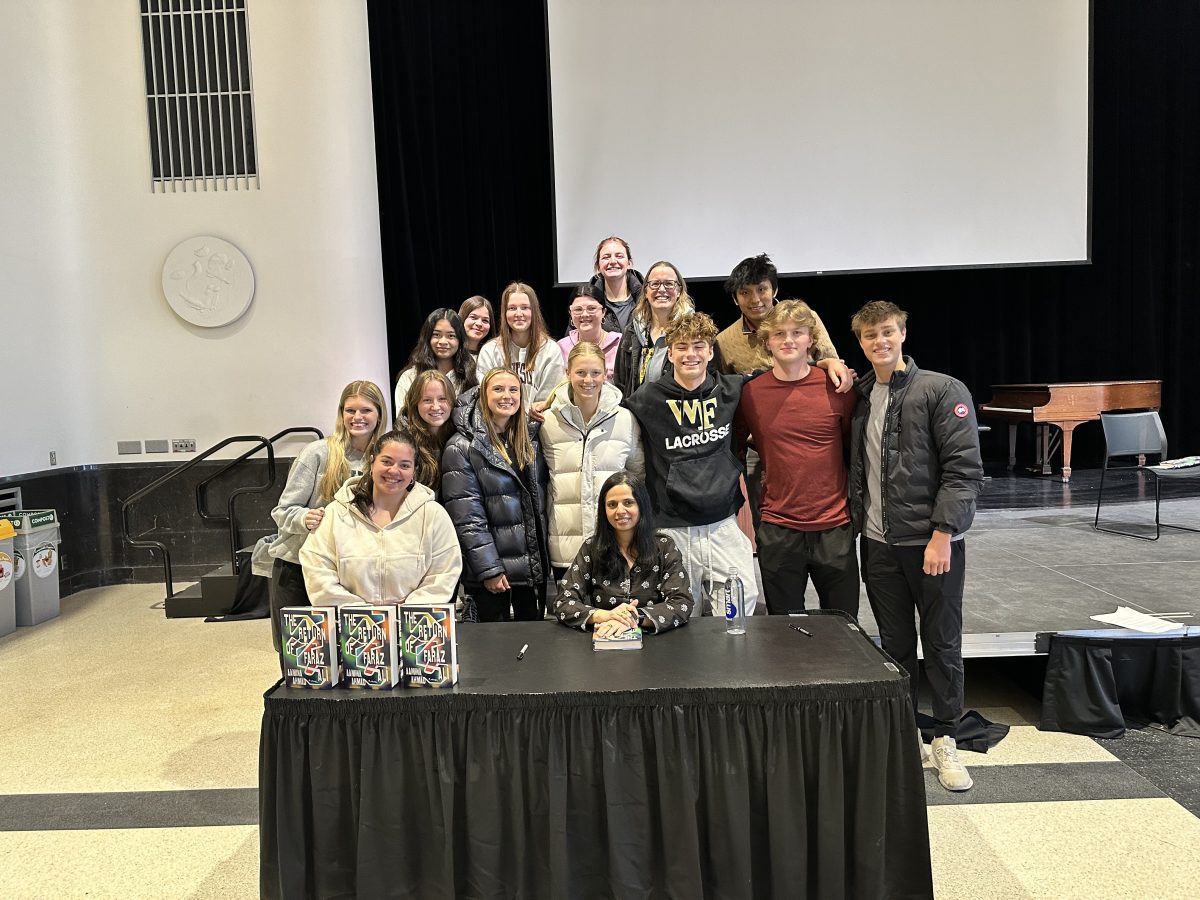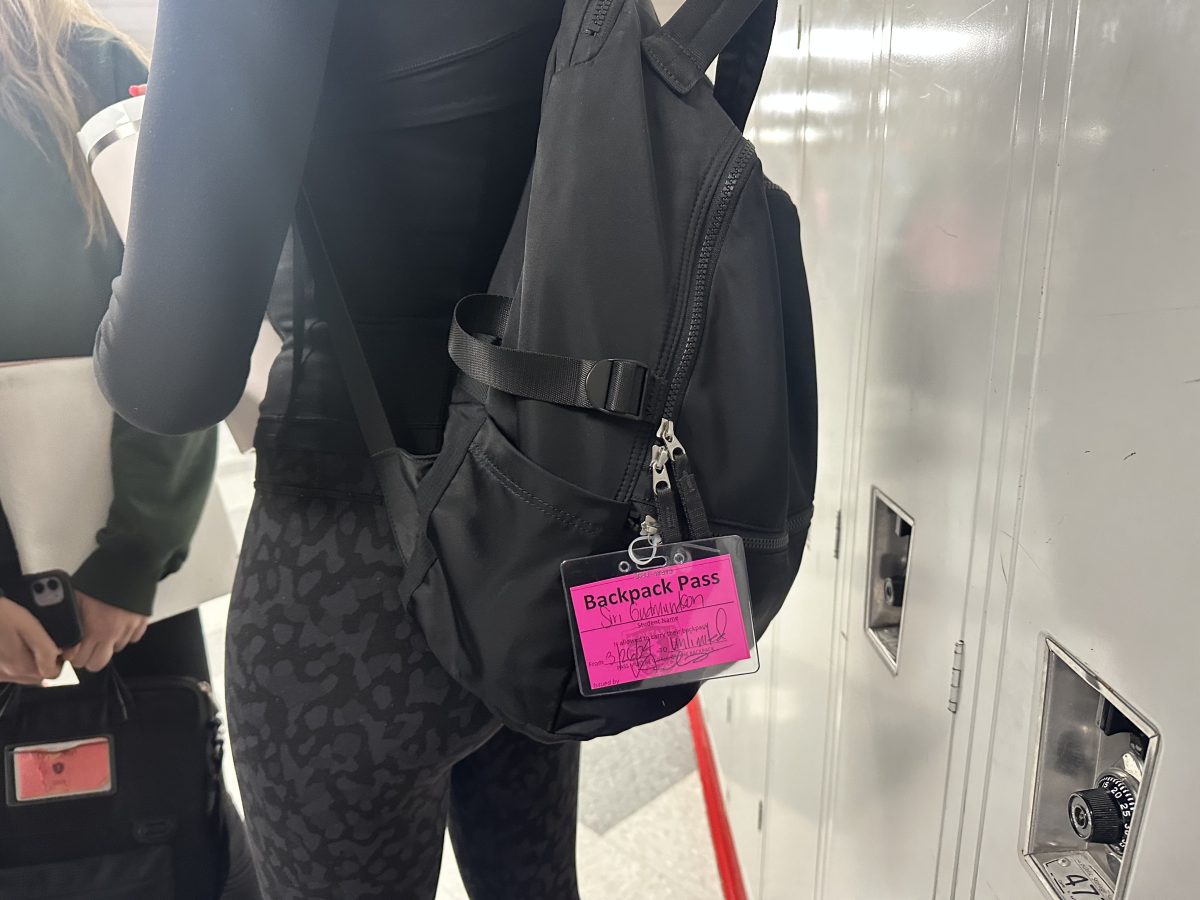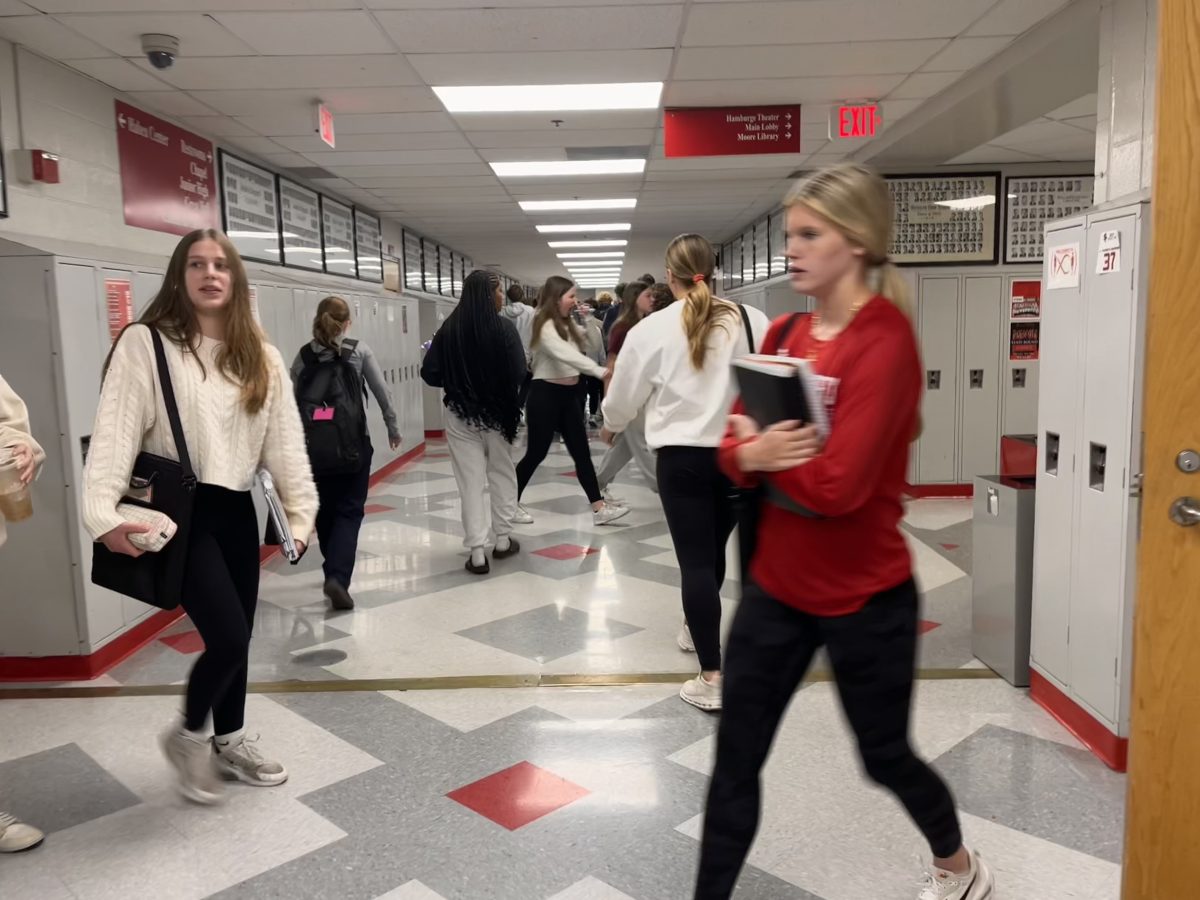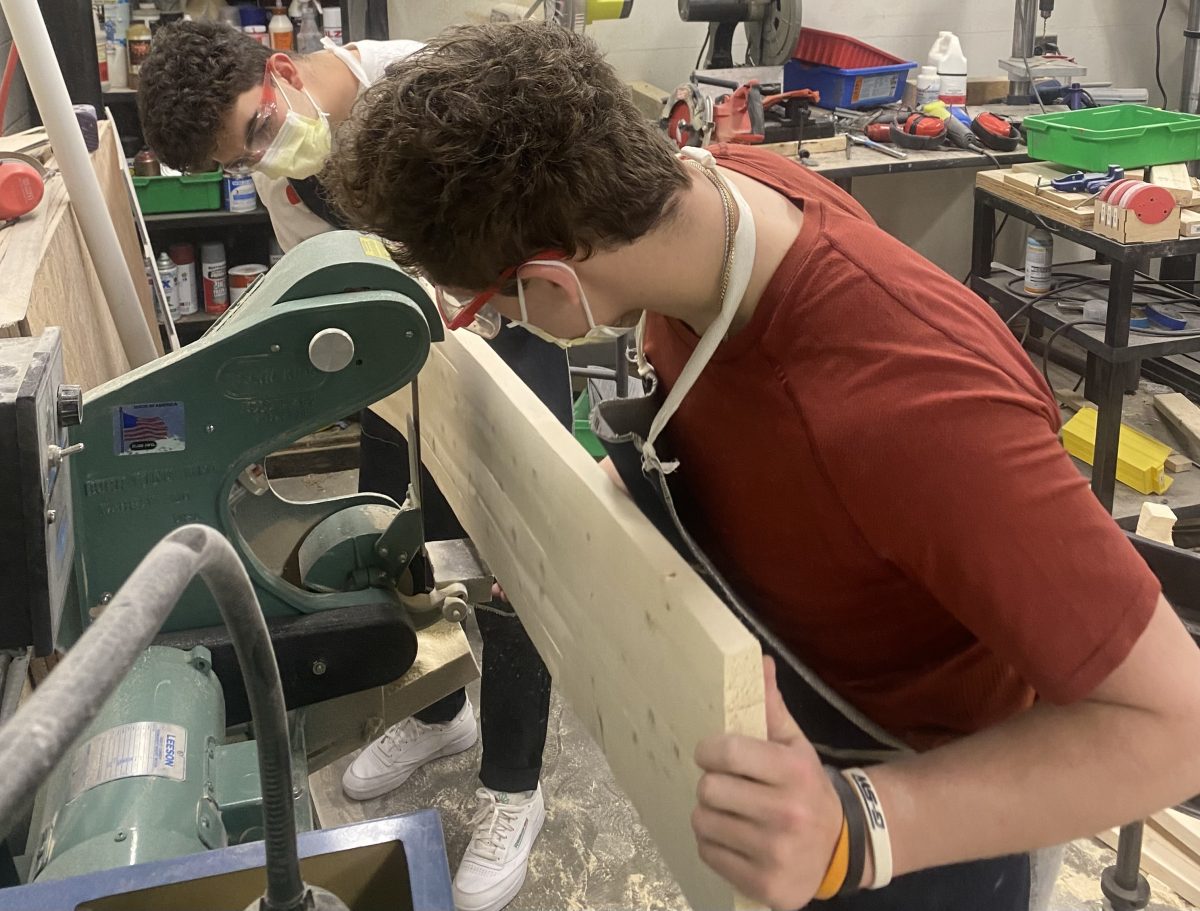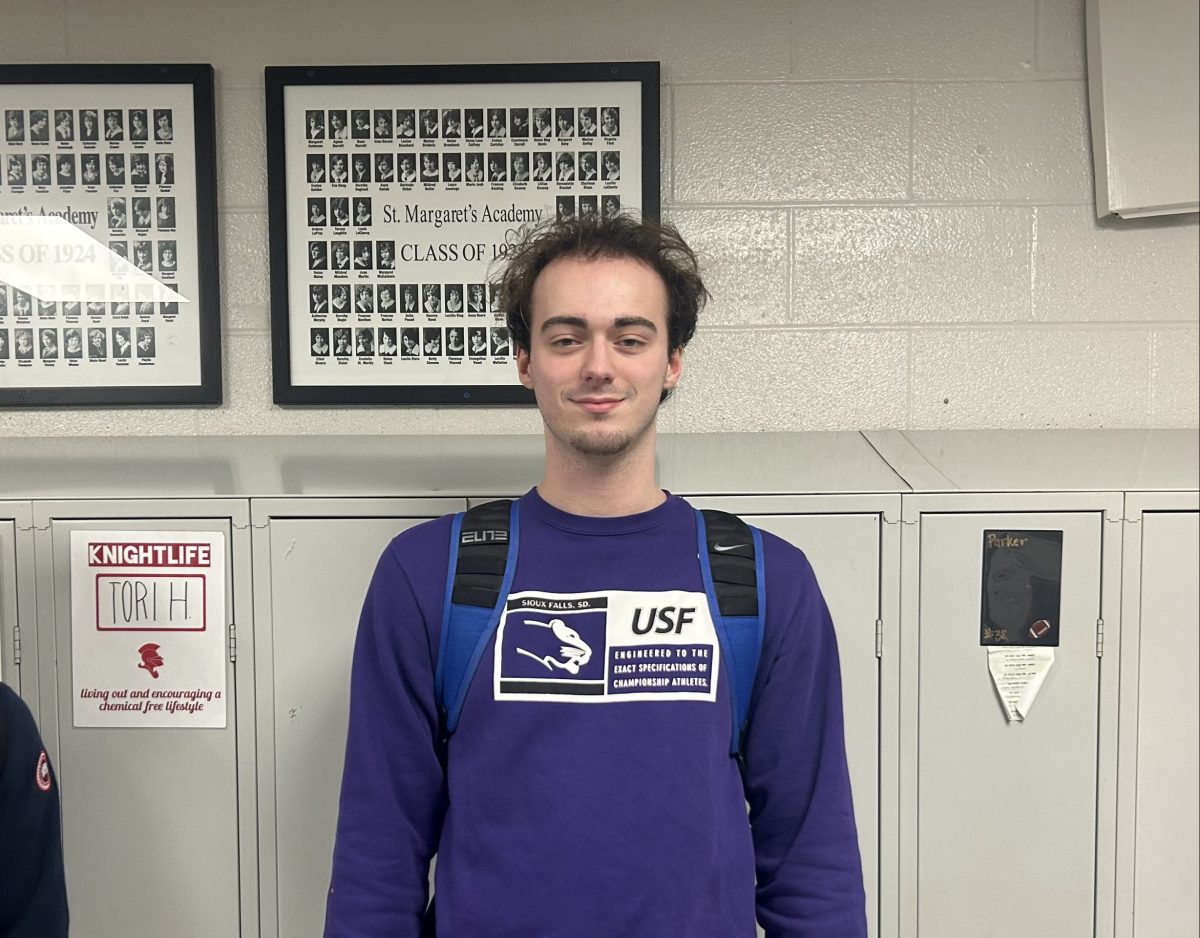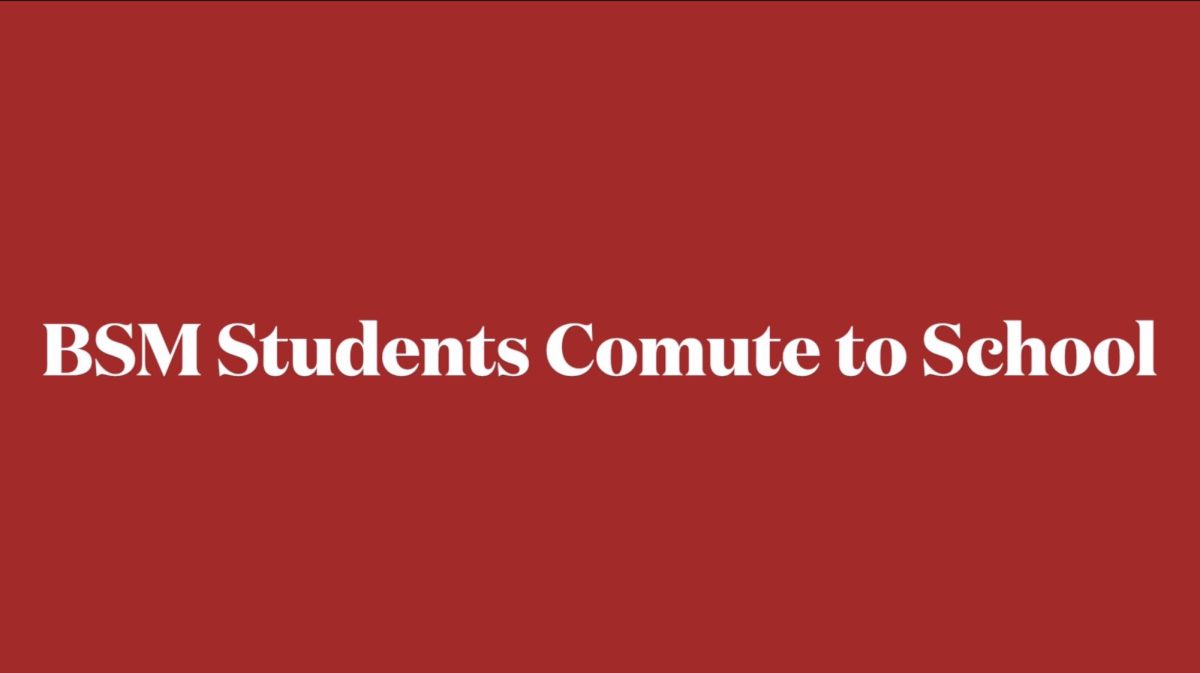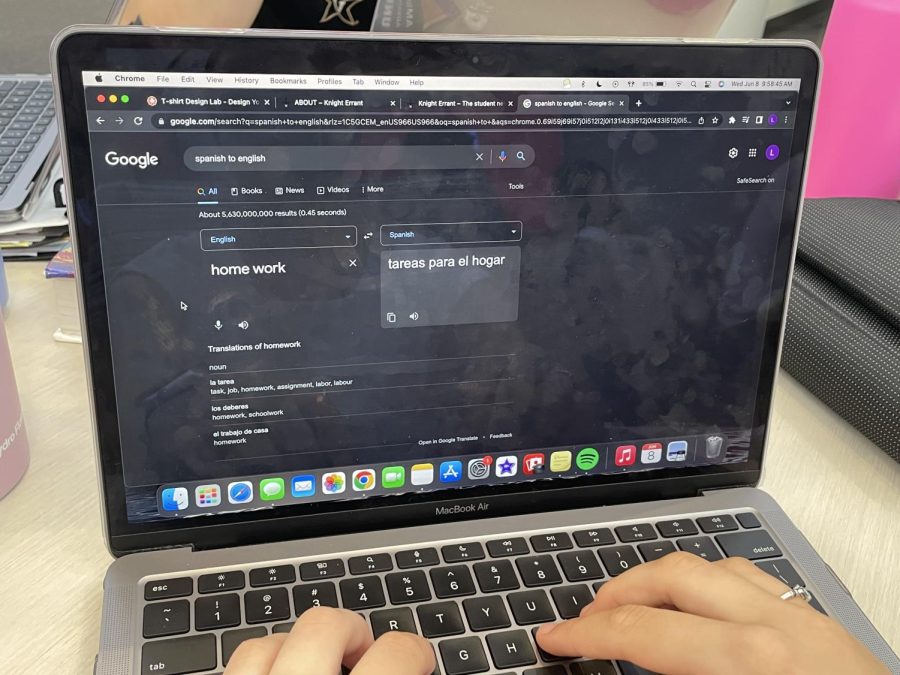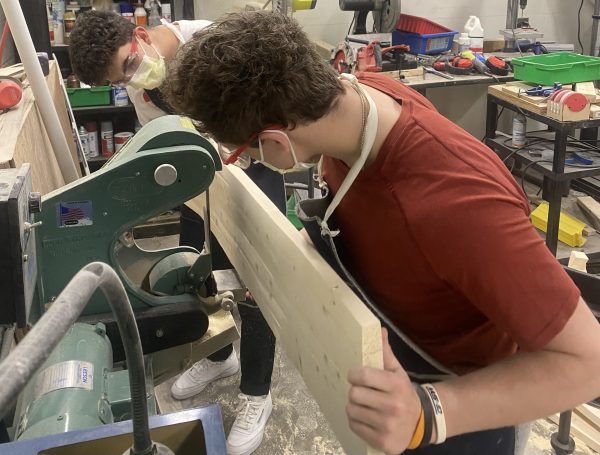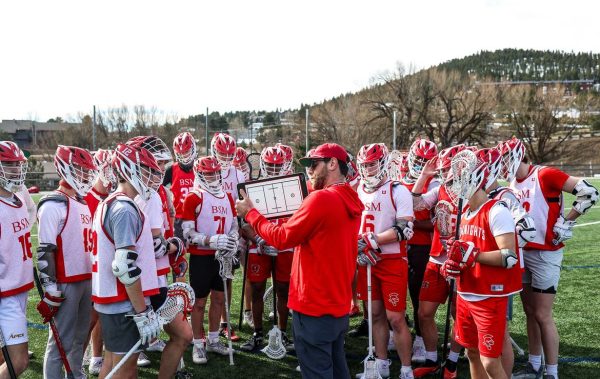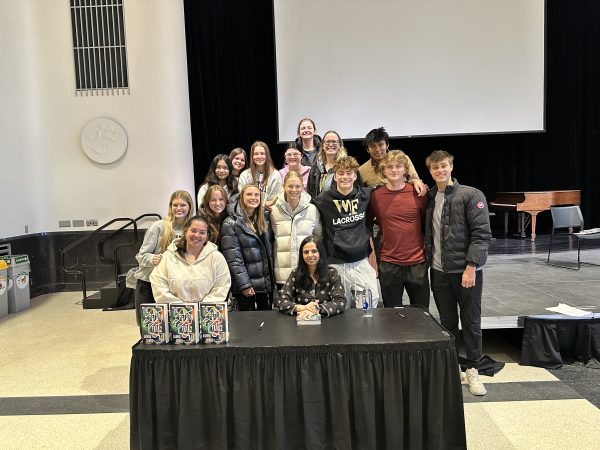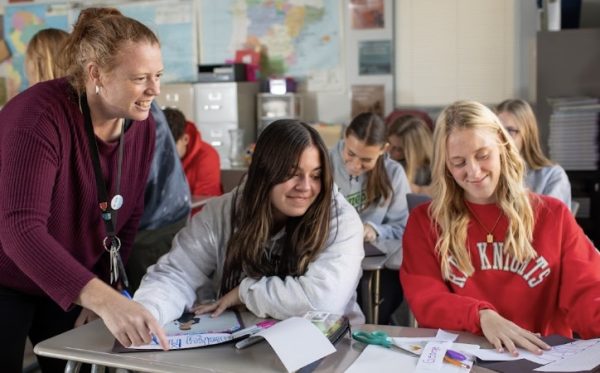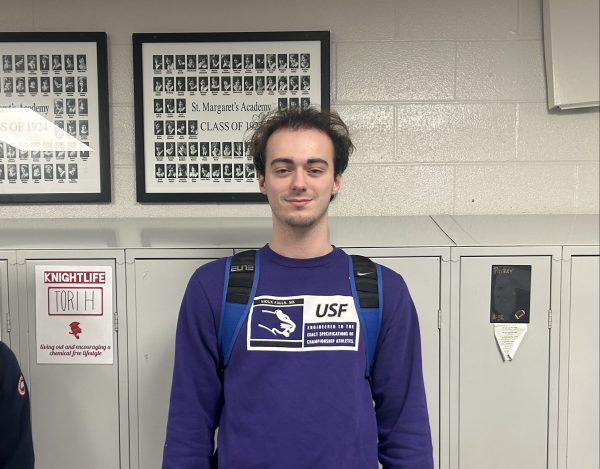Is Cheating Worse than Last Year?
Students use Google Translate and other online services to cheat during class.
Last year, the Knight Errant reported on an uptick of cheating as classes went online during the pandemic. Even as students have returned to entirely in-person classes, the cheating epidemic has continued. If anything, it’s worse.
During online school, many students relied on cheating to achieve good grades. Teachers would administer tests on zoom, and even turn students away to work on tests at home. This made it easy for students to google answers, use notes, or video call with other students in the class.
“I think the first year when we went online, which was 2020, people kind of dabbled in it. Then I think last year more people took advantage of it. But then I think this year, it’s become rampant because people who started doing it have relied upon it. And so I think it’s become almost, you know, pandemic levels. Because it’s not just happening in one class or two classes. It’s happening for some kids across the board and every single class,” Spanish teacher Mary Murray said.
Even with the transition back into in-person education, cheating hasn’t stopped. Teachers suspect that last year, kids developed poor study habits that have carried over into this year. When students are at school in-person, they learn about time management, prioritizing different assignments, and preparing for exams.
“When you’re in school, you’re not only learning content, you’re learning study skills, you’re learning grit, you’re learning how to keep going. You’re learning how to kind of fall on your face and get up and figure it out. And for some reason, in these two years, or however long it’s been with COVID that has become second tier importance,”Science teacher Lisa Bargas said.
In tandem with worsening study skills, students face intense academic pressure. For some students, the fear of getting a bad grade is worse than the fear of being caught for cheating. “I think it’s fear of not getting a good grade. … Maybe it’s fear of being thought of as not smart. I think there’s almost even this value judgment that people make about themselves. If I don’t get an A on this test, somehow I’m less than and that’s it,” Bargas said.
Some departments, like the English department, have had greater success in stopping cheating.
“Myself and other teachers in our departments have put in some safeguards to prevent cheating, especially on tests. If that means making multiple versions of the same test, but also holding kids more accountable to using websites like turnitin.com. It’s also prevented a lot of people or dissuaded a lot of people from wanting to cheat as well,” English teacher Keanan Faruq said.
Right now, the punishment for cheating is primarily up to teacher discretion. Some teachers choose to write students up or give zeros for cheating, while others offer opportunities for retakes and points back.
To combat the cheating, BSM principal Stephanie Nitchals is rewriting the student handbook to crack down on academic dishonesty. The policy will be more standard, with a tier system of behavior similar to the one used in junior high.
“We’re going to use something similar to what the Junior High is using –a tiered system for discipline. So a tier one, tier two to tier three…It still depends on what the situation is. If you’re cheating on a major assignment, that would be a tier two [infraction] and then if you had more than two of those in your high school career, you would be asked to leave BSM,” Nitchals said.
Although a harsher penalty might be effective, to completely stop cheating students need a mindset switch. In recent years, teachers agree that students are focusing more on grades and less on learning, creating academic pressure that sometimes leads students to cheat. Teaching students that it is more important to do your best than to cheat is important in stopping the problem from its root.
“You know, I say this without judgment. I think things need to be reframed. And the reframing is in learning the material versus getting the grade … There is a certain amount of honor and a certain amount of pride I think in doing your best work, your very best work no matter where you land, if you know you did the best you could. … I think doing the best you can versus doing nothing and cheating to get an A. I mean, I look at those two things extremely differently. This shows character and determination and perseverance,” Bargas said.

